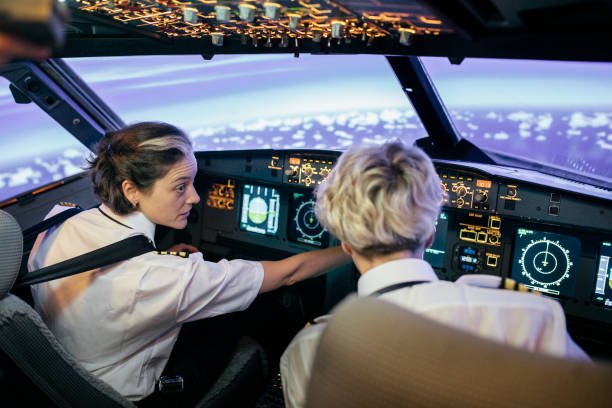Airline safety and security protocols are essential for protecting both passengers and crew members during flights. These protocols are continuously updated and rigorously enforced to address potential threats and ensure a safe travel experience. This article will delve into the key aspects of airline safety and security, highlighting their importance and the measures taken to uphold them.
Importance of Airline Safety Protocols
Safety protocols in the airline industry are crucial for preventing accidents and managing emergencies. They encompass a range of procedures designed to protect passengers and crew from various risks. These protocols are developed based on extensive research and analysis of past incidents, allowing airlines to implement best practices and avoid repeat occurrences.
Airlines invest heavily in training their staff to handle emergencies effectively. Many professionals in the field receive their training from some of the best airline courses in Neemuch, which are known for their comprehensive programs. These courses cover everything from basic first aid to advanced emergency response techniques, ensuring that crew members are well-prepared for any situation.
Pre-Flight Safety Measures
Before a flight takes off, several safety measures are put in place to ensure the aircraft is in optimal condition. This includes thorough inspections of the plane’s mechanical systems, checking for any potential issues that could compromise safety. Additionally, security screenings for passengers and luggage are conducted to prevent any dangerous items from being brought on board.
Pilots and crew members undergo regular training and simulations to keep their skills sharp. Many aspiring aviation professionals choose to study at the best airline college in Neemuch, where they receive top-notch education and hands-on experience. These institutions provide students with the knowledge and skills necessary to excel in the airline industry.
In-Flight Safety Protocols
During a flight, numerous safety protocols are followed to maintain a secure environment. Flight attendants conduct regular checks of the cabin, ensuring that seat belts are fastened and that no hazardous materials are present. They also provide safety demonstrations at the beginning of each flight, informing passengers about emergency exits, oxygen masks, and life vests.
Communication between the flight crew and air traffic control is vital for ensuring a smooth flight. Pilots are trained to respond swiftly to any instructions from air traffic controllers, and they use advanced navigation systems to avoid collisions and turbulence. The rigorous training provided by the best airline courses in Neemuch equips pilots with the skills needed to handle these responsibilities effectively.
Security Measures on the Ground
Airport security plays a significant role in ensuring the safety of passengers and crew members. Stringent security checks are conducted at various points within the airport, from check-in counters to boarding gates. These checks help detect and prevent any potential threats before passengers board the aircraft.
Airports also employ sophisticated surveillance systems and collaborate with law enforcement agencies to monitor and respond to suspicious activities. The training provided by the best airline college in Neemuch includes modules on airport security, preparing students to work effectively in this critical aspect of the aviation industry.
Post-Flight Safety Procedures
After a flight lands, safety protocols continue to be important. Ground crews perform detailed inspections of the aircraft to identify any issues that may have arisen during the flight. Maintenance teams then carry out necessary repairs and routine checks to ensure the plane is ready for its next journey.
Crew members also undergo debriefings to review the flight and discuss any safety concerns that may have emerged. This continuous feedback loop helps airlines improve their safety protocols and address any potential weaknesses.
Conclusion
Airline safety and security protocols are integral to ensuring the well-being of passengers and crew members. From pre-flight checks to post-flight procedures, these measures are meticulously designed and implemented to maintain a safe travel environment. The training provided by the best airline courses in Neemuch and the best airline college in Neemuch plays a crucial role in equipping aviation professionals with the skills and knowledge needed to uphold these high standards. By adhering to these protocols, the airline industry continues to provide safe and secure travel for millions of passengers worldwide.


